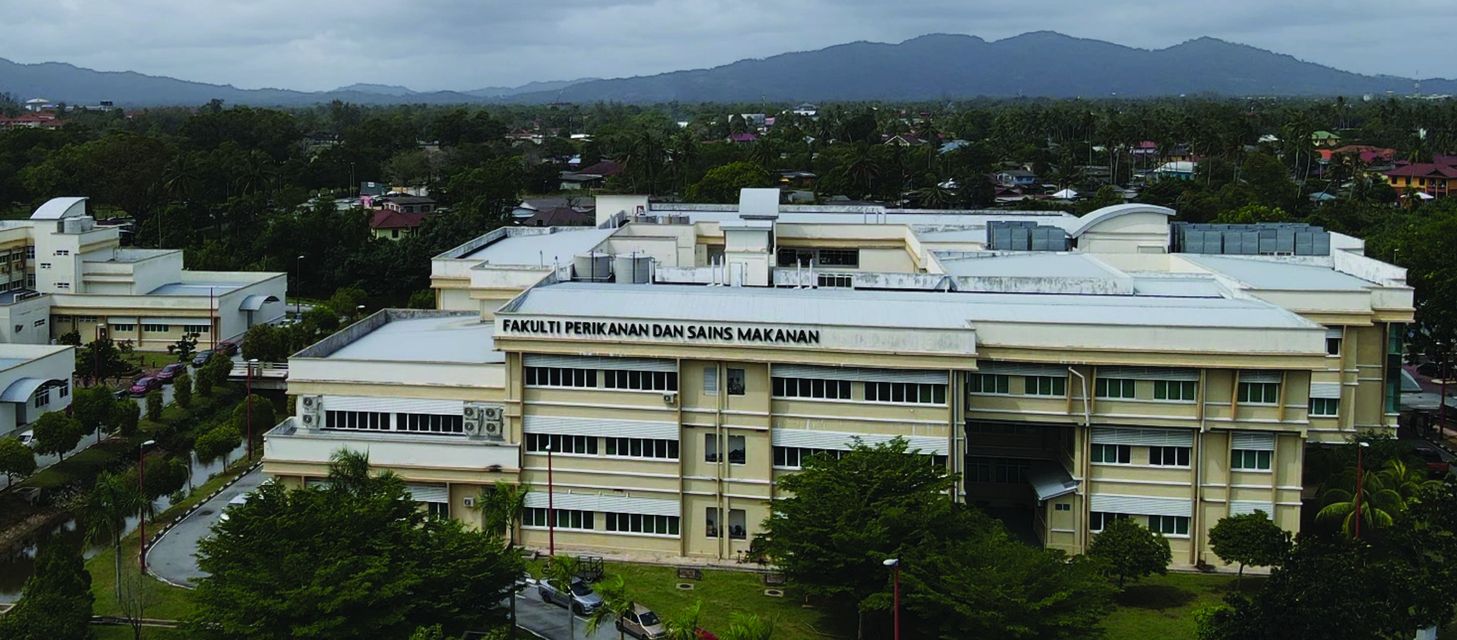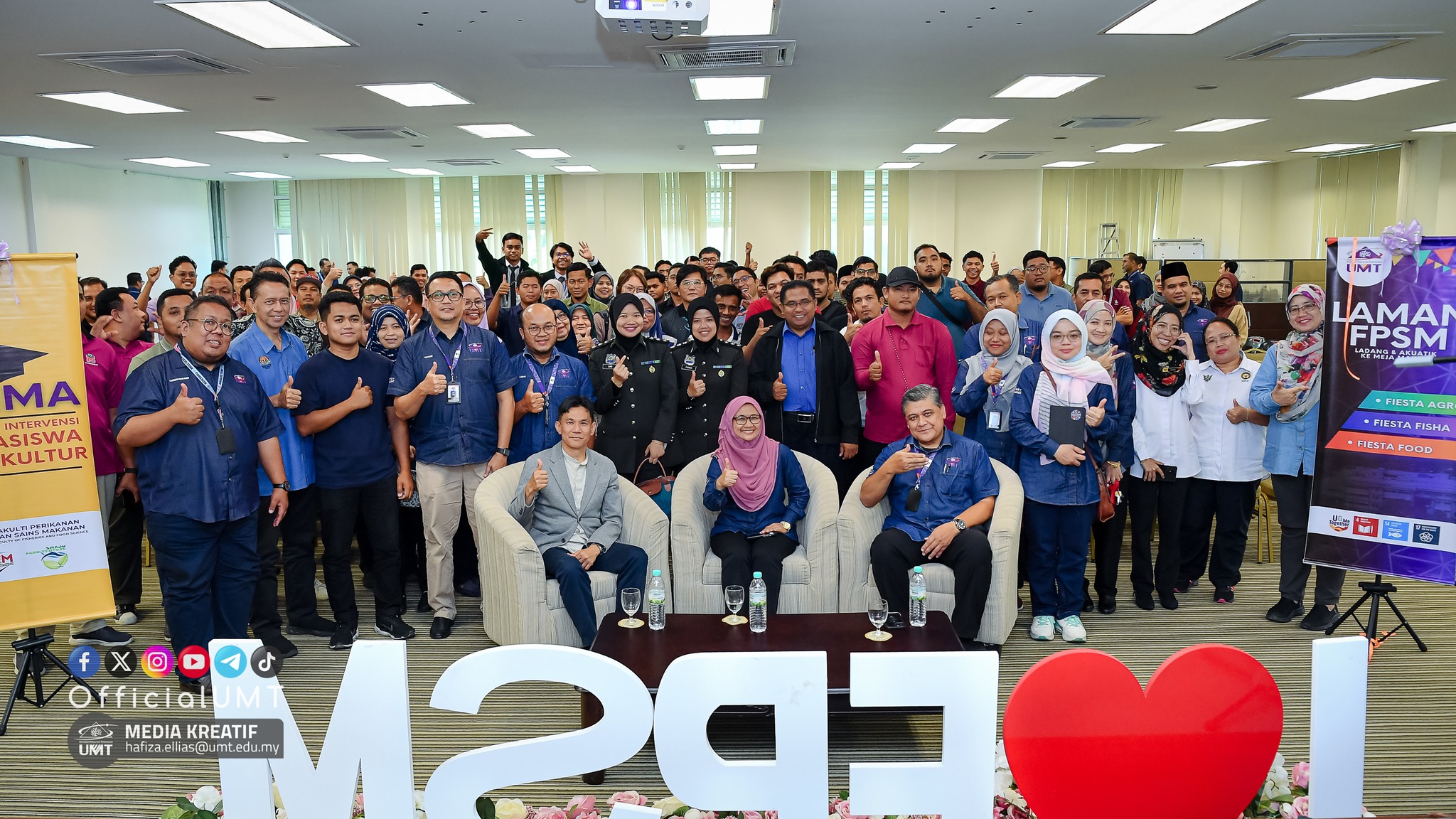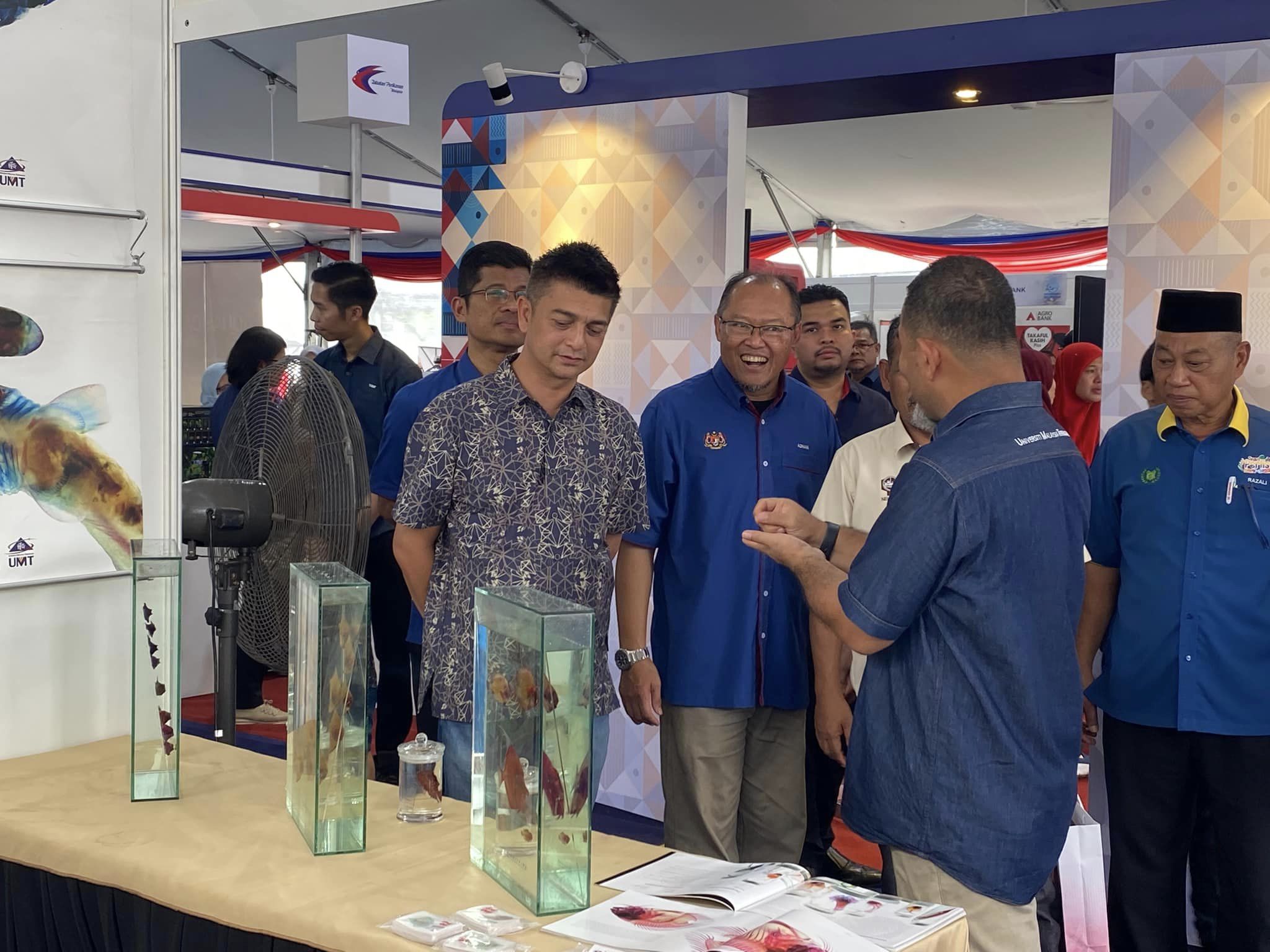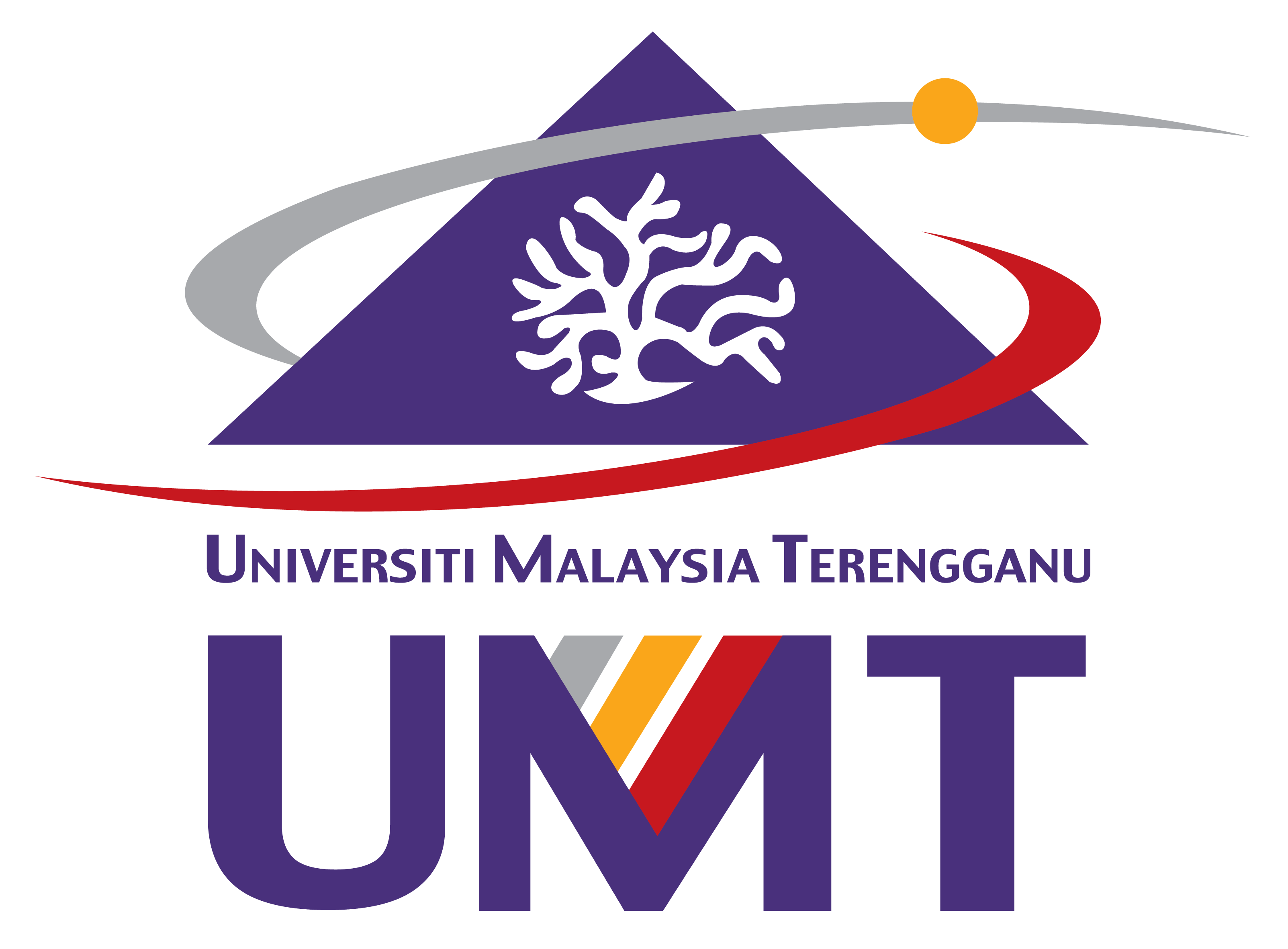The School of Fisheries and Aquaculture Sciences,
Universiti Malaysia Terengganu (UMT) comprises
a family of highly motivated academicians, supporting staff
and students who are ardent towards the advancement of
knowledge in the field of fisheries and aquaculture science.
Begins as a Centre for Fisheries Studies, Faculty of Fisheries
and Marine Sciences, UPM in late 70’s, the center has
been transformed into several stages under several higher
learning institution such as UPMT, KUT, KUSTEM and
finally established in 30th September 2011 as a school
of Fisheries and Aquaculture Sciences of UMT. Our school
upholds the vision to be a center of academic excellence
in fisheries, aquaculture, conservation ecology and aquatic
environment by providing quality programs in teaching,
research, and outreach that will enhance fisheries and wildlife
resource management at local, national, and international
levels. Currently we are offering seven degree programs
which comprises of a Diploma in Fisheries Science, a
Bachelors degree in Fisheries Science, a Bachelors degree in
Aquaculture, Master of Sustainable Tropical Fisheries, Master
of Aquaculture by Coursework, a Master of Science and Ph.D
(by research) in either fisheries or aquaculture. Our academic
team encompasses 5 professors, 5 associate professors and
28 lecturers with Ph.D, majoring in related fields.
This has been a year of many new developments in our
school in-parallel to the UMT Strategic and Development Plan,
especially with regard to teaching facilities and laboratories.
Our school currently has 6 new teaching laboratories and
two well-equipped Fisheries and Hatcheries Laboratory
Complex to disseminate recent advance knowledge in fishing
technology, bio-informatics, fish breeding, larval rearing, fish
diseases, nutrition, live food culture and many more. Our
teaching is supported by modern teaching equipments, with
students comfortably placed in fully air-conditioned lecture
hall. We have a state of the art Central lab which facilitates high
level research in genetics, proteomics, metabolomics and etc.
We strive to provide excellence in research and our school
remains a productive and vibrant center for fisheries and
aquaculture studies in Malaysia. With the current standing
expertise as listed in this handbook, and more to return from
study leave in the coming years, we have every reason to be
confident that they will bring a renewed commitment to the
challenges and opportunities that lie ahead. We look forward
to work with relevant parties to bring the School of Fisheries &
Aquaculture of UMT to greater heights.



